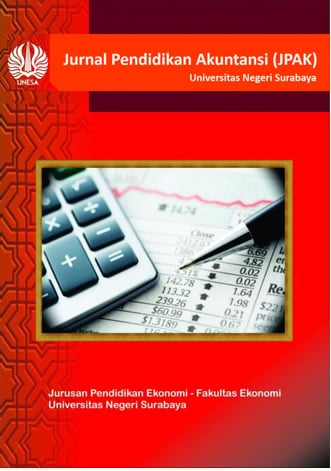Efektivitas Digital Collaborative Learning Terhadap Kemampuan Leadership Mahasiswa Sarjana Terapan Akuntansi
DOI:
https://doi.org/10.26740/jpak.v10n3.p315-322Keywords:
Leadership; digital collaborative learning; accountingAbstract
Leadership is the most essential ability of accounting graduates needed by the labour market. This study aims to examine the effectiveness of digital collaborative learning on the leadership abilities of undergraduate students of applied accounting. The research design uses a quasi-experimental with a quantitative approach. The research was conducted at the Bachelor of Applied Accounting Study Program, Faculty of Economics, Yogyakarta State University in the odd semester of the 2022/2023 academic year. The research sample consisted of an experimental class and a control class of 35 students. An online questionnaire based on a Likert scale with five alternative answers was used to collect data. To ensure that the data met the requirements for analysis, the normality and homogeneity tests of variance were performed. The data was described using quantitative descriptive statistical analysis, and the hypothesis was tested using an independent sample t test. The results of the study show that there are significant differences in the effectiveness of digital collaborative learning on the leadership abilities of undergraduate students of applied accounting. This means that providing digital collaborative learning treatment has a significant impact on improving the leadership abilities of undergraduate accounting students. This means that if lecturer want to improve the leadership skills of their students, they can apply digital collaborative learning to their learning. Further research has the opportunity to examine the effectiveness of different digital collaborative learning media on leadership abilities.
Downloads
Downloads
Published
How to Cite
Issue
Section
License
Authors who publish with this journal agree to the following terms:
- Authors retain copyright and grant the journal right of first publication with the work simultaneously licensed under a Creative Commons Attribution License that allows others to share the work with an acknowledgement of the work's authorship and initial publication in this journal.
- Authors are able to enter into separate, additional contractual arrangements for the non-exclusive distribution of the journal's published version of the work (e.g., post it to an institutional repository or publish it in a book), with an acknowledgement of its initial publication in this journal.
- Authors are permitted and encouraged to post their work online (e.g., in institutional repositories or on their website) prior to and during the submission process, as it can lead to productive exchanges, as well as earlier and greater citation of published work (See The Effect of Open Access).

Jurnal Pendidikan Akuntansi (JPAK) is licensed under a Creative Commons Attribution-NonCommercial 4.0 International License.
 Abstract views: 329
,
Abstract views: 329
, PDF Downloads: 448
PDF Downloads: 448



